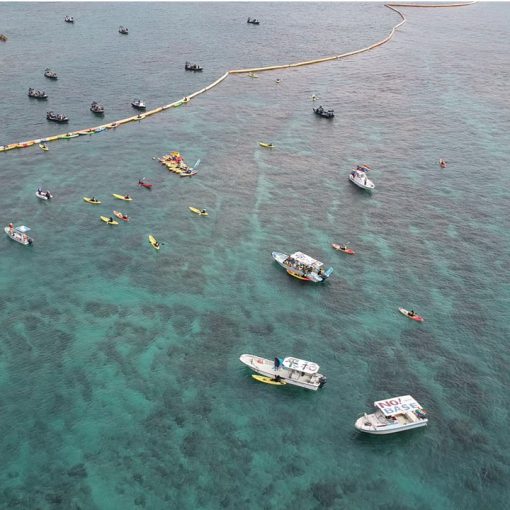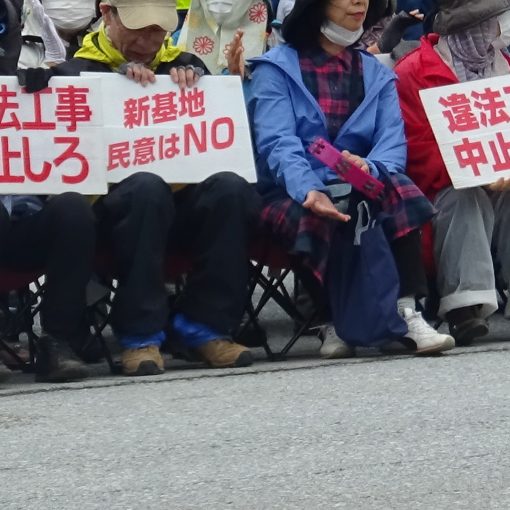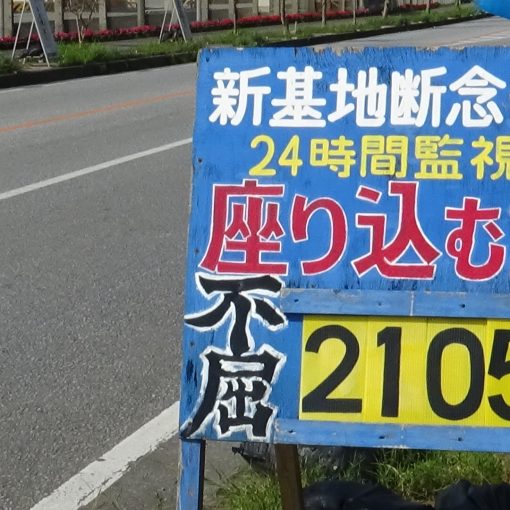March 12, 2020 Ryukyu Shimpo
It came to light on March 11 that through a water quality study conducted on the rivers and drainage channels in Kin Town, Okinawa Prefecture, high concentrations of organic fluorine compounds (PFOS/PFOA), the use of which is principally prohibited within Japan, were detected in 3 places.
Given that the highest detected values of these compounds were found at a site adjacent to the U.S. Camp Hansen, the Kin Town government claims that it is highly probably that the compounds drained from Camp Hansen.
The drainage channel in which PFOS was detected drain from Camp Hansen to U.S. military Kin Red Beach Training Area.
This water is used for agriculture and in peoples’ daily lives.
Currently there is no legal limit on allowable amounts of the substance in water within Japan, but on April 1 the Ministry of Health, Labour, and Welfare will undertake a policy upholding 50 nanograms (of the total value of PFOS and PFOA) per liter as a provisional target value.
All of the values detected in Kin Town exceed the provisional target value.
Since there were successive discoveries of water quality contamination by PFOS and PFOA in the vicinity of U.S. bases such as Futenma Air Station and Kadena Air Base, Kin Town examined 8 rivers and drainage channels in the town in October 2019.
When doing so, the compounds were detected at levels exceeding 300 nanograms per liter at the mouth of the drainage channel flowing from Hansen to Red Beach.
In November 2019, in an effort to specify the cause of the contamination, additional examinations were conducted at 3 places upstream from the mouth of the drainage channel.
When doing so, levels were detected in the vicinity of Camp Hansen at 94 nanograms per liter, midstream at 51 nanograms, and at the mouth at 71 nanograms.
Town Mayor Hajime Nakama said, “In conjunction with the Okinawa prefectural government, we request an investigation into the source in addition to an examination by specialists on the U.S. military base”.
PFOS is suspected to be carcinogenic, and the use and manufacture of persistent organic pollutants is internationally restricted by the Stockholm Convention (POPs Convention).
The US Environmental Protection Agency (EPA) uses 40 nanograms per liter as the index at which reexamination toward the cleanup of ground water contaminated by organic fluorine compounds such as PFOS is necessary.
(English translation by T&CT and Erin Jones)





